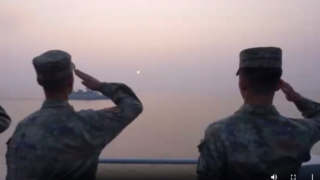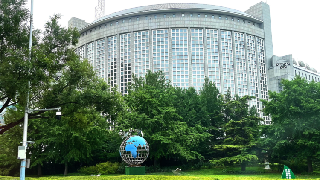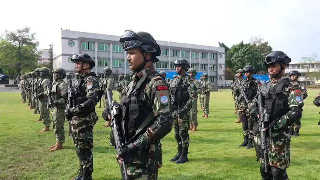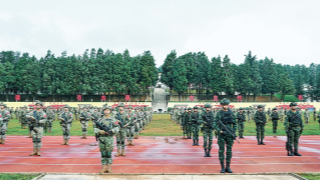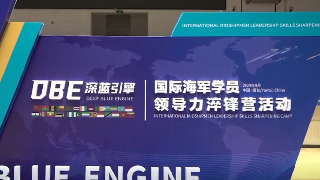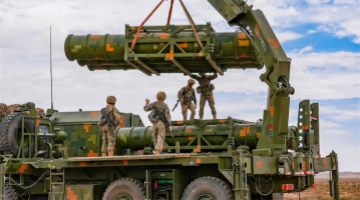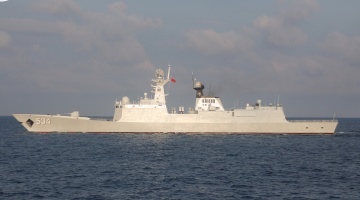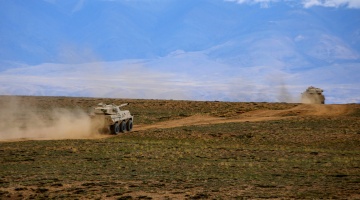By Zhang Liulu
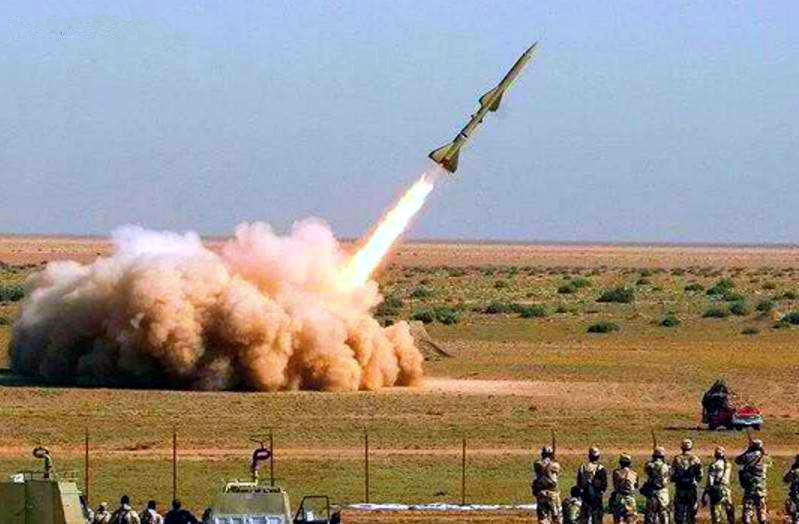
The whole world is closely watching how two events will affect the situation in the Middle East. The agreement on a “120-hour ceasefire by Turkish troops in north Syria” will expire at 10:00 p.m. on October 22, local time; on the same day, Russian president Putin and his Turkish counterpart Erdogan held talks about the Syrian situation in Sochi.
Although we can anticipate the actual measures and policies to be adopted by various countries, the future of Middle East remains unclear owing to its complicated and fragile situation.
Middle East steps into a “post-America era”
At the panel discussion focused on “New Security Situation in the Middle East” of the 9th Beijing Xiangshan Forum held on Monday, the participating experts agreed that the Middle East is in the most chaotic situation since the WWI.
According to Tang Zhichao, director of Division of Middle East Studies, Institute of West Asian and African Studies (IWAAS) of Chinese Academy of Social Sciences (CASS), the Middle East is stepping into the “post-America era”, when America’s strategic contraction from there has left “double vacuums” both of power and security.
Against such a background, the old interest alliance begins to split, and the regional strategic landscape is increasingly moving toward multi-polarization. On one hand, local powers like Turkey, Iran and Israel begin to play a bigger part in regional affairs; on the other hand, there is a strong undercurrent of competition between major countries like the US and Russia.
While new macro movements should be worthy of in-depth reflections, new micro tendencies are equally conspicuous. Issues of the Middle East are never one-dimensional, but are intertwined with ethnic and religious conflicts, making their resolution extremely difficult.
According to Wang Lincong, Deputy Director-general of the Institute of West-Asian and African Studies (IWAAS), “the Middle East is facing a growing variety of security issues, including ecological and social security. The parallel aggravation of and interaction between non-conventional and conventional security problems lead to ‘composite security issues’.”
Composite issues have always been a major headache in international governance because they keep emerging one after another if no comprehensive and coordinated measures are taken. The Turkey-Syria dispute, for instance, not only involves the regional games of major countries, but also has intricate connections with terrorist organizations like the IS, the ethnic position of the Kurds, and other issues.
Given such a grave situation, properly managing and controlling divergences, finding the greatest common ground among all parties and their interests, and restoring peace and stability in the Middle East is the common aspiration of the international community.
Great powers should shoulder their responsibilities
Major powers play an extremely important role in the process of reshaping security in the Middle East, which has been a place contended by all parties since ancient times for its great geopolitical and geo-economic values. “Middle East is like a powder keg that can easily be detonated by armed conflicts.
At present, some major countries’ actions have cast a shadow over regional security, and groundless accusations have led to warfare,” said a senior researcher at the Institute for Political and International Studies of Iran.
Delegates at the panel session offered “prescriptions” to chill down the “heated” Middle East situation. Saying that restoring order in the Middle East will be a long-term job, Huang Ping, Director of CASS Institute of European Studies, urged major countries to fulfill their responsibilities, arrive at staged results through dialogue and consultation, and agree on some kind of transitional arrangements.
As a responsible major country, China has been calling on all parties to stay calm and restrained and advocated resolving the problems through political approaches under the UN framework. At the panel session, China’s Middle East policies were discussed.
Andrew Scobell, a senior researcher with America’s Rand Corporation, held that the Middle East has extremely important strategic values on China’s diplomatic map, and past experience in the region has proved that China is a good mediator, while keeping a certain distance to the matters there.
Li Shaoxian, Director of Arabian Nations Research Institute of Ningxia University, responded to Andrew by saying that China’s stance on the Middle East has been clear and consistent. China upholds the five principles of peaceful co-existence and would never interfere in another nation’s internal affairs. That’s out of respect for a sovereign country.
Appeals of Middle East people must be respected
Speaking of the Middle East, people usually think of flying bullets and deafening cannons, and homeless people with completely no idea where their future is. The international community should step out of the macro narrative of international relations and listen to what the Middle East people have to say.
Many experts said it was irresponsible to conceptualize the Middle East region as it also has a thriving side despite the chaos and turmoil. “Egypt has doubled its infrastructure construction in recent years and built 14 new cities that provide homes for 20 million people.
The country’s present GDP growth is among the top five in the world,” said a delegate from Egypt. This in a way indicated that Middle East countries are capable of taking care of their domestic affairs. Therefore, countries outside the region should be more cautious when engaging in regional affairs and respect local culture instead of forcing their own principles and norms.
In general, the Middle East is standing at a crossroad with a path in front of it that, hazy and uncertain as it is, also contains rare opportunities.
The Middle East people’s desire for change and peace should be fully respected, and Middle East countries’ principal role in handling their own matters should be further demonstrated.
?

